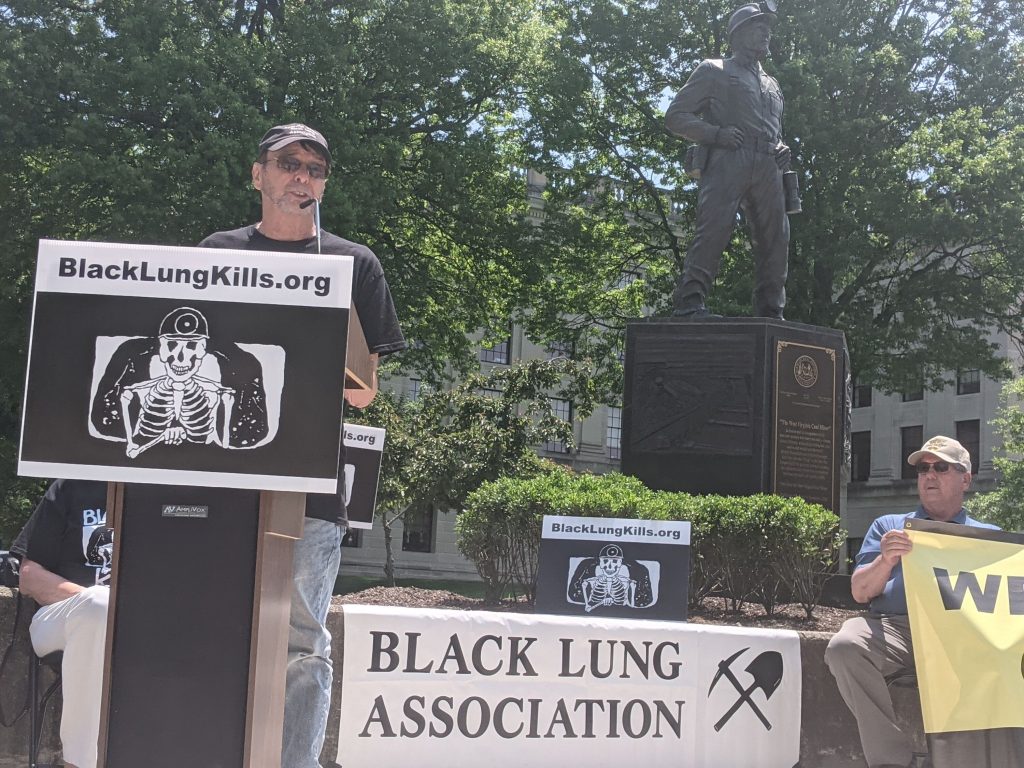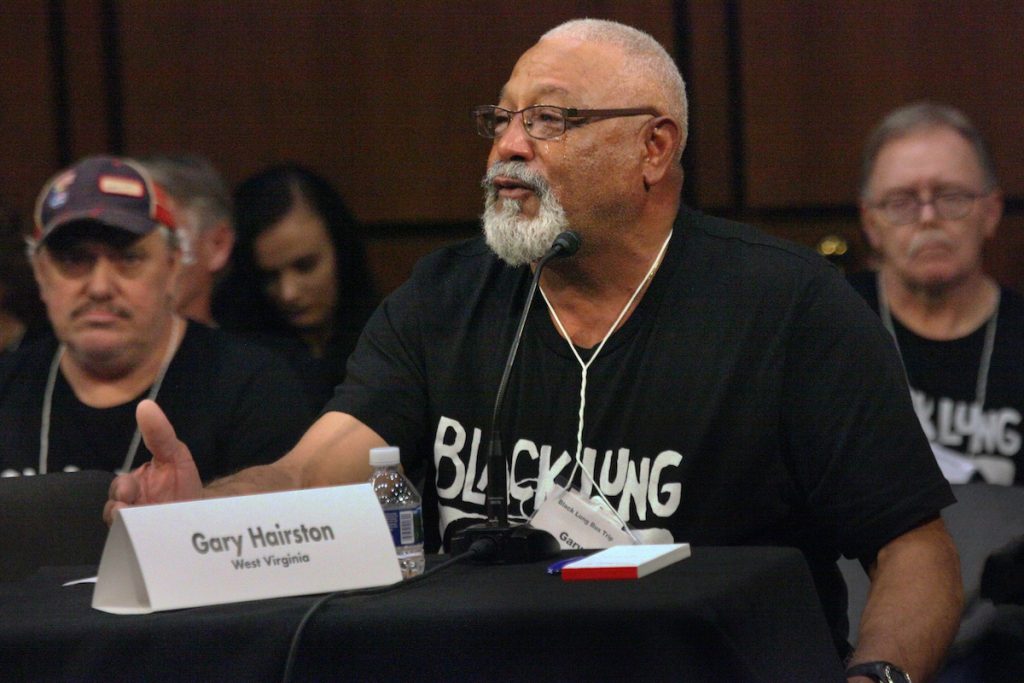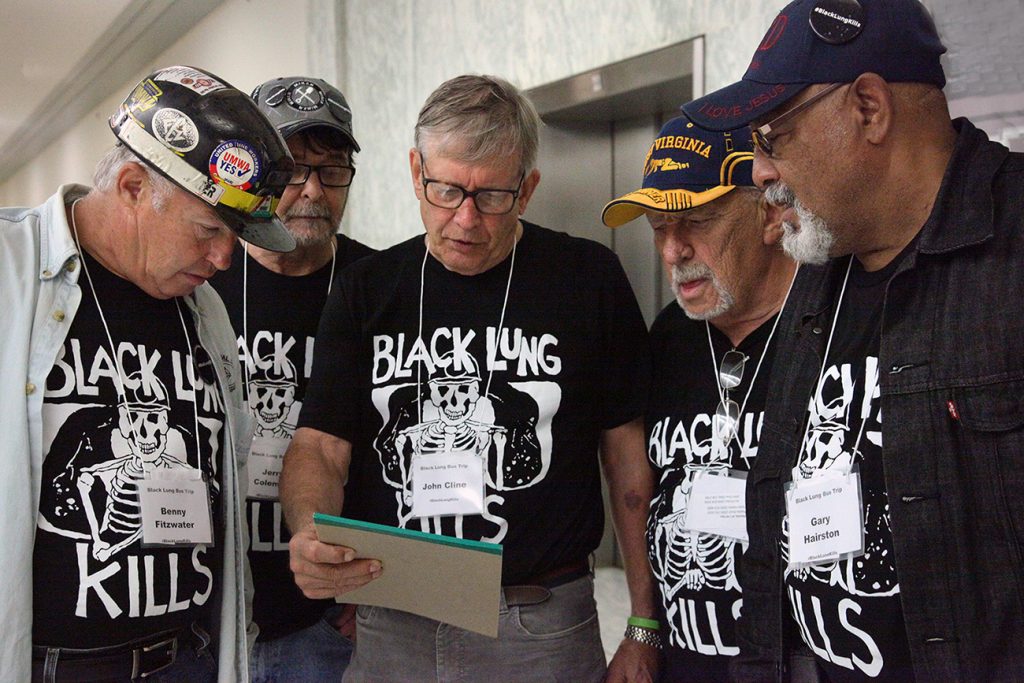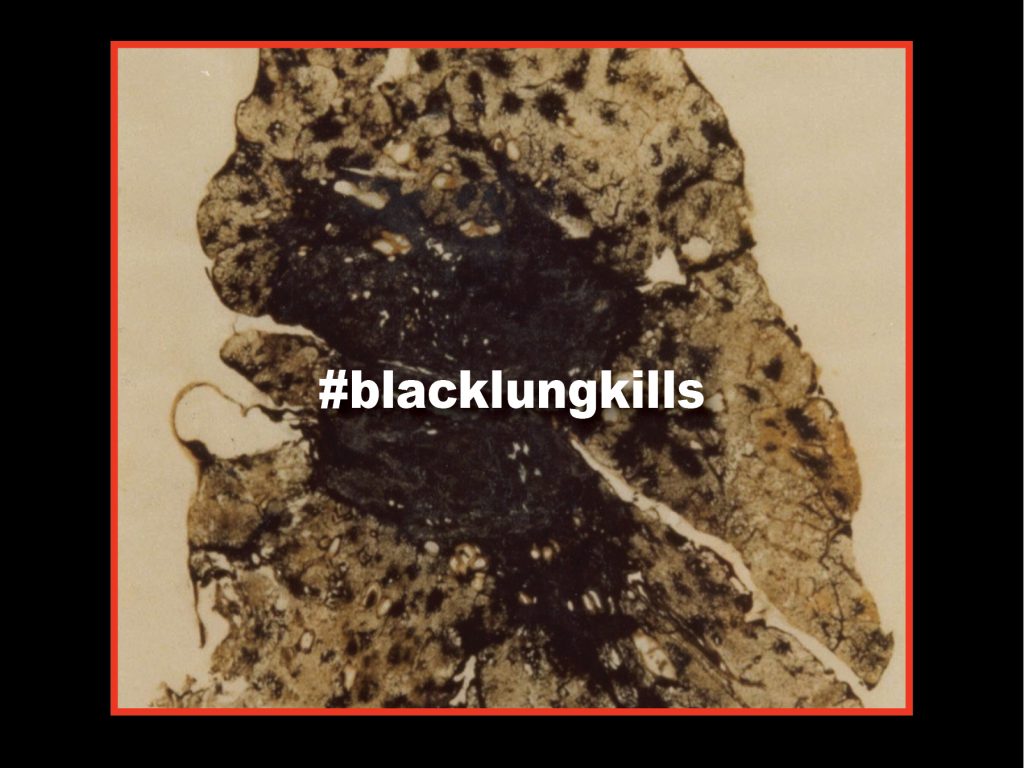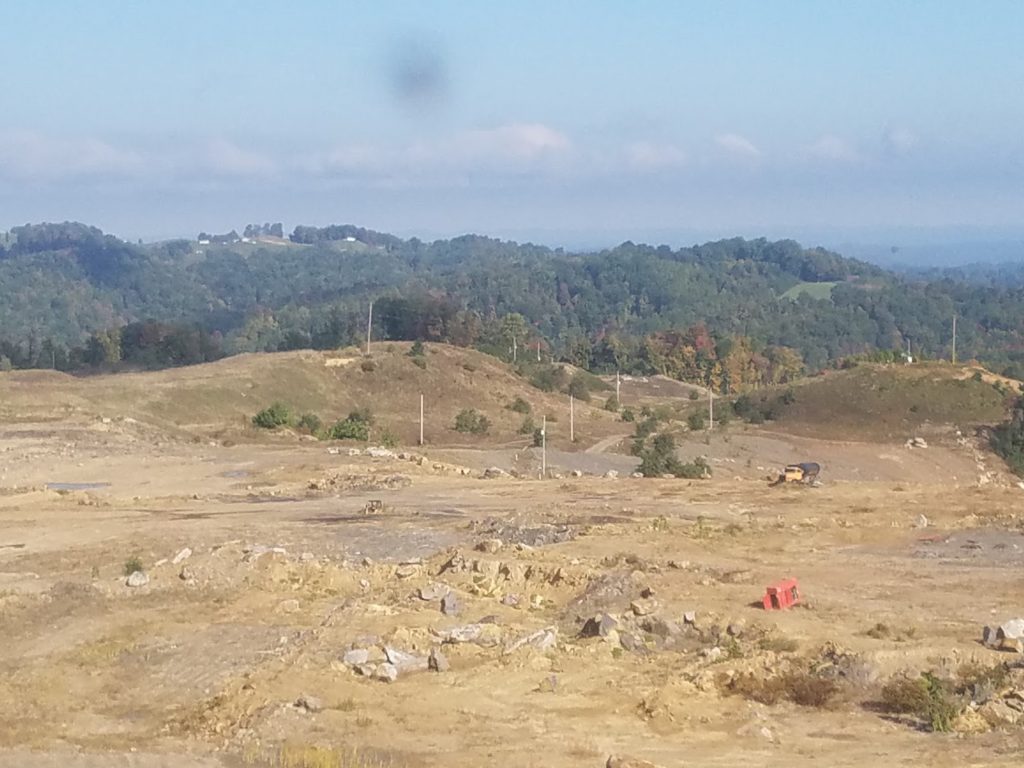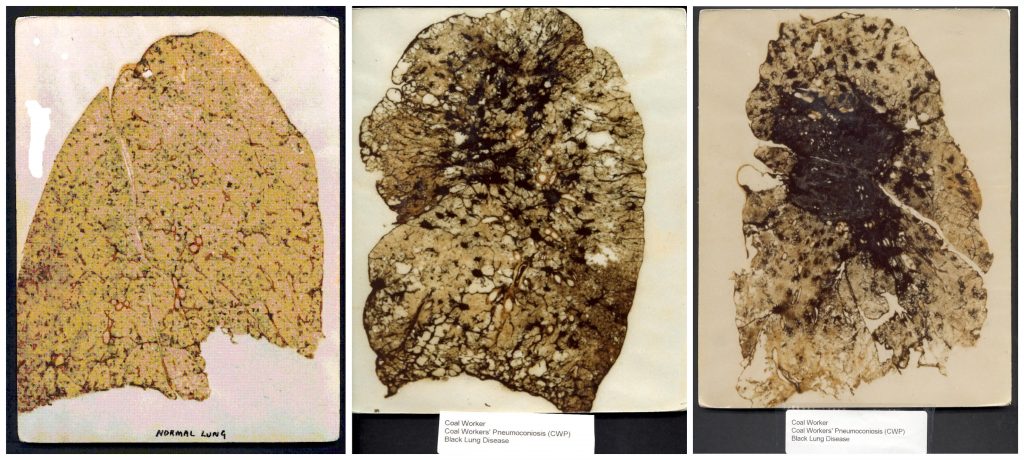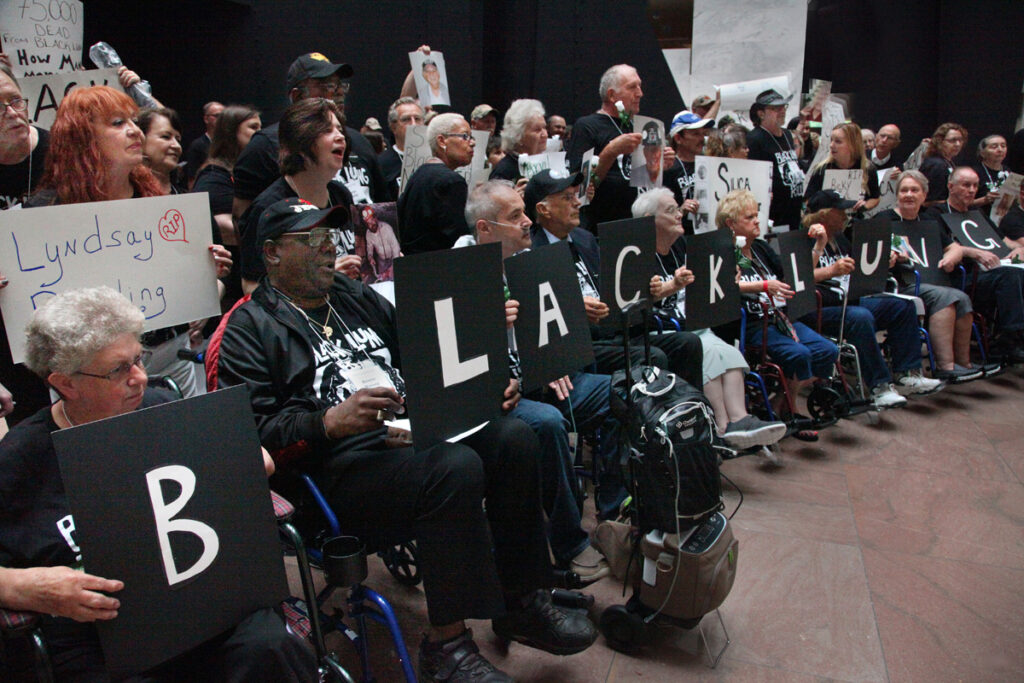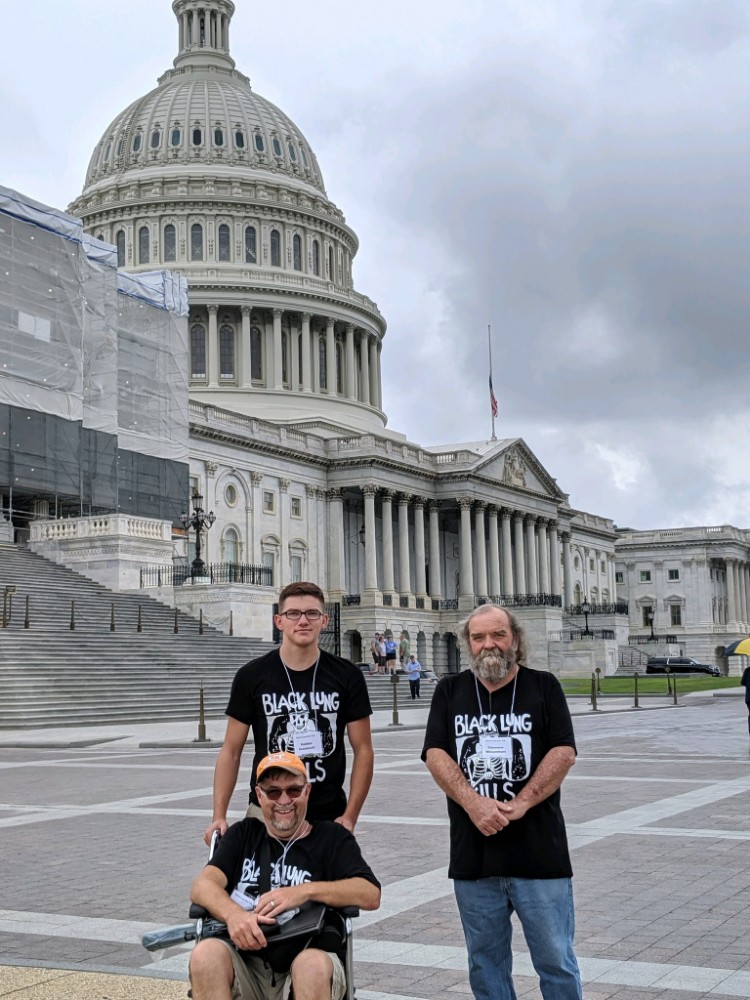Posts Tagged ‘coal miners’
Regulators Poised to Update Miners’ Protections from Silica Dust
Expected new silica dust regulations in mines could combat the rise of black lung disease. However, the effects of an ongoing federal silica enforcement initiative remain unclear.
Read MoreBlack Lung Association asks Sen. Capito to support 10-year extension of black lung excise tax
Members of the Black Lung Association are asking U.S. Sen. Shelly Moore Capito to support a 10-year extension of the Black Lung Excise Tax to shore up funding for black lung benefits.
Read MoreMiners with black lung call on Congress to protect benefits
In an August webinar, advocates and representatives of the Black Lung Association discussed the critical importance for the passage of a permanent 25% increase to the Black Lung Excise Tax on coal companies.
Read MoreBlack Lung Benefit Fund Would See Major Boost from Change to Coal Tax
Changing the structure of a tax that funds federal benefits for miners could bring tens of millions of dollars annually to the cash-strapped Black Lung Disability Trust Fund.
Read MoreCongress includes one-year extension of black lung excise tax in omnibus spending bill
A one-year extension of the excise tax that funds the Black Lung Disability Trust Fund is included in the 2021 omnibus spending bill. This is the second year in a row that a one-year extension has been included in the spending bill on the brink of expiration. CONTACT: Rebecca Shelton, Appalachian Citizens’ Law Center, 859-893-0543,…
Read MoreBankruptcy Proposal Would Dodge Mine Cleanup Laws
As the Blackjewel bankruptcy continues, the responsibility to reclaim mine sites and workers’ compensation for past medical bills are still major issues.
Read MoreBlack lung service providers shift in the face of COVID-19
As coal miners with black lung disease have a heightened risk of complications from coronavirus, black lung healthcare providers work to respond to the global pandemic.
Read MoreProgress on healthcare for miners with black lung disease
Congress reinstated a tax to fund healthcare and benefits for miners with black lung and their families for 2020 — but further action is needed to extend the tax and support the fund for 10 years.
Read MoreMiners Take Black Lung Demands to D.C.
Approximately 150 Appalachian coal miners, widows and their loved ones visited Capitol Hill in July to demand that Congress reinstate a tax rate on coal companies for black lung healthcare and benefits.
Read MoreMiners Pressure Congress for Pension Fix
Dozens of retired coal miners came to the capitol and called on Washington lawmakers to pass legislation to preserve pensions for tens of thousands of retired and working miners.
Read More
